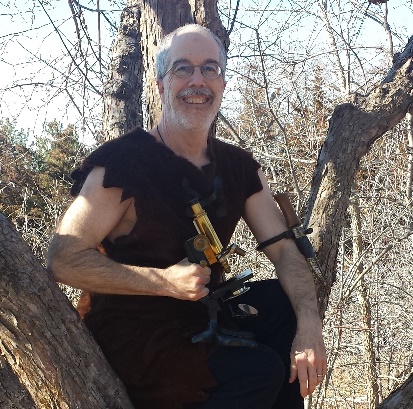One of the interesting side effects of our modern tendency to reduce ourselves to very complex machines is to take the metaphor a bit too far. If I turn on my PC at work and leave it on for two weeks it just keeps going and going like the Eveready Bunny. So if we just work it right, can’t WE just keep on going at a steady pace too? We’re just complex machines, right? Um. No. We don’t work that way, do we? Steady state is for computers, not for humans. Our very biology is based on rhythms.
Tony Schwartz writes in “The Way We’re Working Isn’t Working” that our design is to expend energy and then to rebuild it. He references studies by Ericsson on high performers in music, chess, and athletics; none of the world class performers practice hard more than 4 hours/day and they also take breaks each 60-90 minutes. Work, rest, work, rest. Oh, and the very best? They sleep 8-9 hours/day.
So what are these rhythms? What is the time period–daily, weekly, monthly, yearly? More often?
At the micro end, take your pulse. Our hearts beat for decades at around 70 beats per minute. The rate rises and falls with emotion and physical activity but the rhythm marches on. Daily rhythms have the name “circadian.” If you have been on a long jet trip you understand that we have natural circadian rhythms that adapt slowly. In my medical lab we take stock of circadian rhythms. For example, plasma cortisol levels, testosterone levels, even fasting glucose levels vary by time of day and the ordering physicians must take that information into account.
Light and dark form a rhythm in our lives, too. We don’t sleep well if we ignore that rhythm. We tend to sleep better if we douse the blue light in our lives for several hours before bedtime. (I use a program called f.lux that dims the blue and brings up the warm colors after sunset.) Reminds me of mastodon fat candles sputtering on the cave wall. On the other hand, PaleoPathologist finds that if he leaves the artificially lit cave and walks around the hospital for a few minutes in the midafternoon, his energy level is a lot better. He has also discovered that if the screens go off at 8:30, sleep is much better.
Sleep is a huge deal. We already mentioned that the highest performers sleep more than the midrange performers. If you aren’t getting 7-8 hours a day you are very likely underperforming. And one of the first brain functions to go is the AWARENESS that you are underperforming. PaleoPathologist knows a lot of other docs that think sleep is for the weak and are paying the price.
Start with the time you wake up. 6AM? OK. Simple math. Go back 8 hours. That is, yes, ten PM. If you want 8 hours, you must be IN BED at 10, not “thinking about” bed, not “puttering around getting ready for bed.” It’s a discipline! Uh, you might miss Jimmy Fallon; what a tragedy.
So let’s see…keep a good sleep rhythm, pay attention to light and dark, keep a good consistent rhythm. Check.
So what’s next?
The ancient Hebrews wrote down the text of the Old Testament which includes another well-known rhythm, that of Sabbath Rest. It starts in the very first book of the Bible, Genesis, and is codified in the Ten Commandments. I wonder why? Did the Creator really need to rest, or was it perhaps modeling of behavior in humans that keeps us happy and healthy? PaleoPathologist does a lot better if he rests on Sunday, taking account of the weekly rhythm built into humans. (By the way, I’m not implying that if you don’t believe then this doesn’t apply to you. Three thousand years of observation by people who were just as smart as us says that six days of work, one day of rest just works better.)
Another weekly rhythm in my life is the exercise-recovery rhythm. The high intensity weight lifting routine demands seven days of recovery; five to six days just is not enough. (Yes, PaleoPathologist has done the experiment.)
Another exercise rhythm is that of Jeff Galloway, the olympic runner. He has discovered that most of us do better if we put periodic walk breaks into our running. He says most people improve their marathon times if they put a walk break in every mile or so! (PaleoPathologist thinks his great-great ancestors would have laughed at some of the people huffing and puffing on concrete trails…)
What about monthly rhythms? Women know about this for sure with menstruation, and the moon rotates around the earth about once in 28 days. We built our calendars around that approximate time period.
Then there are yearly rhythms. Spring, summer, fall, winter. Planting of crops, cultivating and caring for them, and harvest. Short days, medium days, long days. Here is another rhythm that we have lived with for millions of years, and then tried to dispense with in the last few decades. We are a bit arrogant, aren’t we? And people like PaleoPathologistKid end up with Seasonal Affective Disorder living in modern caves like Chicago in the winter.
Also we need to take time off during the year. PaleoPathologistGrandfather told tales around hunting camp of people he worked with who were petrified of taking time off of work. He said they feared that people might discover that they weren’t indispensable. The downside of feeling indispensable is that you can’t take any time for family, friends, or breaks, and sooner or later they WILL find out that work goes on, with or without you.
Pay attention to the rhythms in your life. Fighting them, pretending that you are a computer, just doesn’t pay!

Please note: I reserve the right to delete comments that are offensive or off-topic.